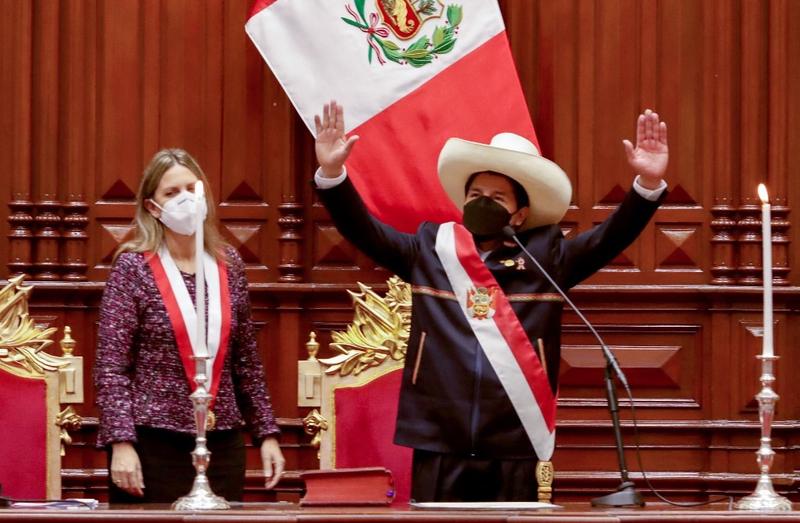 Italian Prime Minister Mario Draghi gestures as he speaks during a press conference with Italy's Justice Minister and Italy's Health Minister (unseen) at the Multifunctional Hall of the Presidency of the Council, in Rome, on July 22, 2021. (ROBERTO MONALDO / POOL / AFP)
Italian Prime Minister Mario Draghi gestures as he speaks during a press conference with Italy's Justice Minister and Italy's Health Minister (unseen) at the Multifunctional Hall of the Presidency of the Council, in Rome, on July 22, 2021. (ROBERTO MONALDO / POOL / AFP)
ROME – Mario Draghi is struggling to hold together his coalition government due to divisions over a proposed justice reform which is contested by the 5-Star Movement, the largest ruling party, and by many Italian prosecutors.
Italy has long been dogged by a dysfunctional, painfully slow judicial system, but repeated attempts to overhaul it have failed to significantly reduce backlogs in many courts.
The cabinet approved draft legislation on July 8 as one of a series of reforms Draghi promised the European Union to unlock billions of euros in Recovery Funds, but it still needs to be approved by parliament
For decades, justice has been the most contentious area in Italian politics, and the latest dispute is the first significant threat to the unity of Draghi’s multi-party coalition which took office in February.
The cabinet approved draft legislation on July 8 as one of a series of reforms Draghi promised the European Union to unlock billions of euros in Recovery Funds, but it still needs to be approved by parliament.
The proposed reform aims to reduce backlogs and speed up court proceedings, but many 5-Star members and prosecutors say it will prevent completion of thousands of trials which will simply be scrapped before a verdict is reached.
Bogged down by justice, Draghi has had to slow down other promised reforms of the tax system and competition rules.
To speed things up, he has said he will put the judicial overhaul to a vote of confidence, a risky way of forcing it through parliament by truncating debate on amendments. The vote is expected early next week.
If a government loses a confidence vote it has to resign. This is all but impossible as even if 5-Star votes against Draghi, he will still have a majority. His coalition would however will be far less solid going forwards.
The most contentious part of the reform makes yet another revision to the statute of limitations, which automatically scraps trials if a verdict is not reached within a set time from when the crime was committed
ALSO READ: Italy gets green superministry as Draghi eyes EU funds
“I don’t even want to consider the possibility the reform will not be changed,” 5-Star’s leader and former prime minister Giuseppe Conte told reporters after meeting Draghi on Tuesday. He declined to say what 5-Star would do in the confidence vote.
The most contentious part of the reform makes yet another revision to the statute of limitations, which automatically scraps trials if a verdict is not reached within a set time from when the crime was committed.
Italy’s justice system has three degrees of judgment, meaning defendants can make two appeals. Far more cases are wiped out by the statute of limitations than in other advanced countries.
5-Star’s justice minister in the previous government removed time limits on prosecutions once an initial verdict is reached, arguing that many offenders, especially white collar criminals, avoid justice by using legal tactics to delay court proceedings.
The new reform by Draghi’s Justice Minister Marta Cartabia, a former Constitutional Court chief, would freeze the statute of limitations at the end of the first trial but set strict time limits for the two appeals.
If the first appeal is not completed in two years and the second in one year, all cases bar those punishable with a life sentence will expire without a verdict unless judges grant special dispensation for the trial to continue.
Nicola Gratteri, one of Italy’s best-known anti-mafia prosecutors, told parliament the reform would mean 50 percent of trials would be wiped out in the appeals stage, meaning many criminals would go free and “an alarming situation for public safety.”
READ MORE: Italy's Draghi wins lower house confidence vote
Cartabia says she can speed up trials thanks to measures to encourage defendants to seek plea-bargain deals and the hiring of thousands of support staff in courtrooms.


